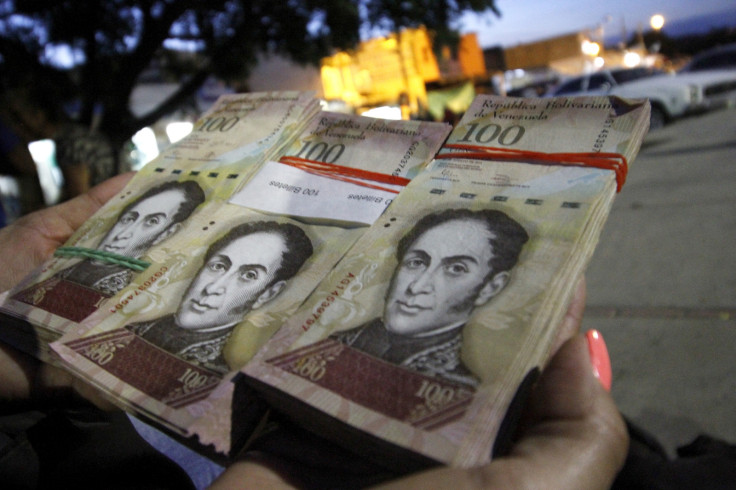Venezuela to withdraw highest denomination banknotes from circulation to combat smuggling
Over six billion 100-bolivar notes were in circulation in November, Central bank data says.
The Venezuelan government on Sunday, 11 December, announced that it will pull its largest notes from circulation in the coming days. The country's highest-denomination banknotes will be replaced with coins within 72 hours.
President Nicolas Maduro said the flow of 100-bolivar notes – which has lost most of its value over the past few years and is now worth about 2 cents (£0.015) – will be stopped on Wednesday and Venezuelans will be given 10 days to exchange notes at the central bank.
Maduro, during an hour-long speech, added that the move was important to fight smuggling and deal with the chronic shortage of food and other basic items in the country. The president also said that the gangs that function in border areas will not have time to exchange the money.
"I have decided to take out of circulation bills of 100 bolivars in the next 72 hours. We must keep beating the mafias.
"I have given the orders to close all land, maritime and air possibilities so those bills taken out can't be returned and they're stuck with their fraud abroad," President Maduro said.
Economists and critics, however, have condemned the move by the president and slammed it as economically nonsensical. They also added that there would be no way to exchange all the 100-bolivar notes in circulation in the time the president has fixed.
Cuando la ineptitud gobierna!A quién se le ocurre hacer algo asà en Dic y con las dificultades que hay?Maduro y su cúpula! https://t.co/oaNqDMwlD9
— Henrique Capriles R. (@hcapriles) December 11, 2016
"When ineptitude governs! Who would possibly think of doing something like this in December amid all our problems?" two-time opposition presidential candidate Henrique Capriles posted on Twitter, referring to the Christmas holiday.
According to the country's Central bank data presented in November, over six billion 100-bolivar notes were in circulation, 48 percent of all notes and coins. However, authorities on Thursday are expected to issue six new notes and three new coins, the largest of which will be worth 20,000 bolivars, less than $5 on the streets, the Reuters reported.
Venezuela is stuck in an economic crisis and is facing the world's highest inflation. The country's economy has been badly hit due to the steep decline in oil prices.
While Maduro's critics hold him responsible for the crisis, the leader has blamed the opposition and the business community for the shortage in essential supplies.
It is said that the recent development would probably worsen the situation in Venezuela.

India took a similar route in early November, which has caused a major disruption in the country's money flow.
© Copyright IBTimes 2025. All rights reserved.



















